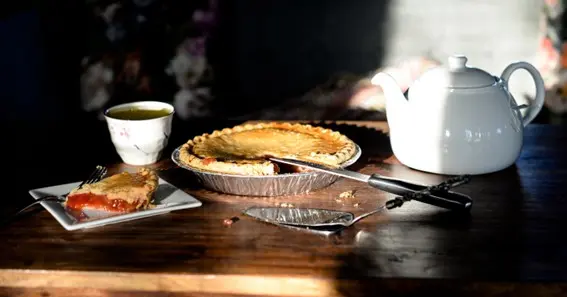When was the poem Baked Goods by Aimee Nezhukumatathil made? Though the exact day or month of composition isn’t publicly documented, “Baked Goods” is widely associated with Aimee Nezhukumatathil’s debut poetry collection, Miracle Fruit, published in 2003 by Tupelo Press. This collection introduced a fresh, lyrical voice in contemporary American poetry, and “Baked Goods” stands out for its rich imagery and introspective charm. Below, we explore the poem’s context, themes, and enduring appeal.
Context and Significance
Aimee Nezhukumatathil is known for weaving together nature, cultural identity, familial bonds, and everyday moments into vivid, accessible poems. In Miracle Fruit, she offers a window into her Filipino-Indian-American heritage, often using food and cooking references to evoke warmth, connection, and a sense of place. “Baked Goods” perfectly illustrates this hallmark style:
- Sensory Imagery
The poem is brimming with scents and tastes, inviting readers to experience familiar moments—like baking in a kitchen or sharing a comforting meal—in a more profound and contemplative way. - Reflection on Family & Heritage
Many of Nezhukumatathil’s poems highlight family traditions and the blending of cultural backgrounds. “Baked Goods” uses simple acts (baking, tasting, feeding loved ones) to explore broader themes of identity and belonging. - Lyrical & Accessible Style
While some contemporary poets embrace highly experimental forms, Nezhukumatathil’s work remains largely accessible. She relies on clear, resonant language, ensuring that even complex emotions feel close to home.
When Was the Poem Baked Goods by Aimee Nezhukumatathil Made? (Focus Keyword Heading)
Reiterating the focus keyword here: When was the poem Baked Goods by Aimee Nezhukumatathil made? Although a precise writing date is not publicly available, it was first widely introduced to readers in 2003 with the publication of her debut collection, Miracle Fruit. Since then, the poem has been discussed in classrooms, literary forums, and book clubs, reflecting its relatable subject matter and heartfelt tone.
Lasting Appeal
- Universality: The poem’s focus on food, comfort, and nurturing resonates with readers across cultures.
- Tangible Imagery: Vibrant descriptions make the poem a sensory delight, appealing to taste, smell, and touch.
- Personal Connection: Nezhukumatathil’s personal heritage shines through without alienating readers, showcasing how specific cultural details can touch universal human experiences.
FAQ
- Who is Aimee Nezhukumatathil?
Aimee Nezhukumatathil is an award-winning Filipino-Indian-American poet whose works often celebrate nature, family, heritage, and everyday wonders. She is also known for her essay collection, World of Wonders. - When was Baked Goods officially published?
It appeared in Nezhukumatathil’s debut collection, Miracle Fruit, released in 2003 by Tupelo Press. - Where can I read Baked Goods?
The poem can be found in Miracle Fruit. Some poetry websites, academic databases, or anthologies may also feature it. Always check for legitimate, copyright-approved sources. - What themes does Baked Goods explore?
The poem delves into themes of family, comfort, cultural identity, and the shared love language of food. - What is Aimee Nezhukumatathil’s writing style like?
She often writes in free verse, rich with sensory details. Her tone blends humor, warmth, and introspection, offering a personal yet welcoming view of her multifaceted heritage and experiences.
Aimee Nezhukumatathil’s “Baked Goods” demonstrates how poetry can elevate the simplest moments—like baking—into meditations on memory, family, and cultural identity. Though we can’t pinpoint the exact date it was penned, its 2003 publication in Miracle Fruit marked its memorable introduction to the literary world.










